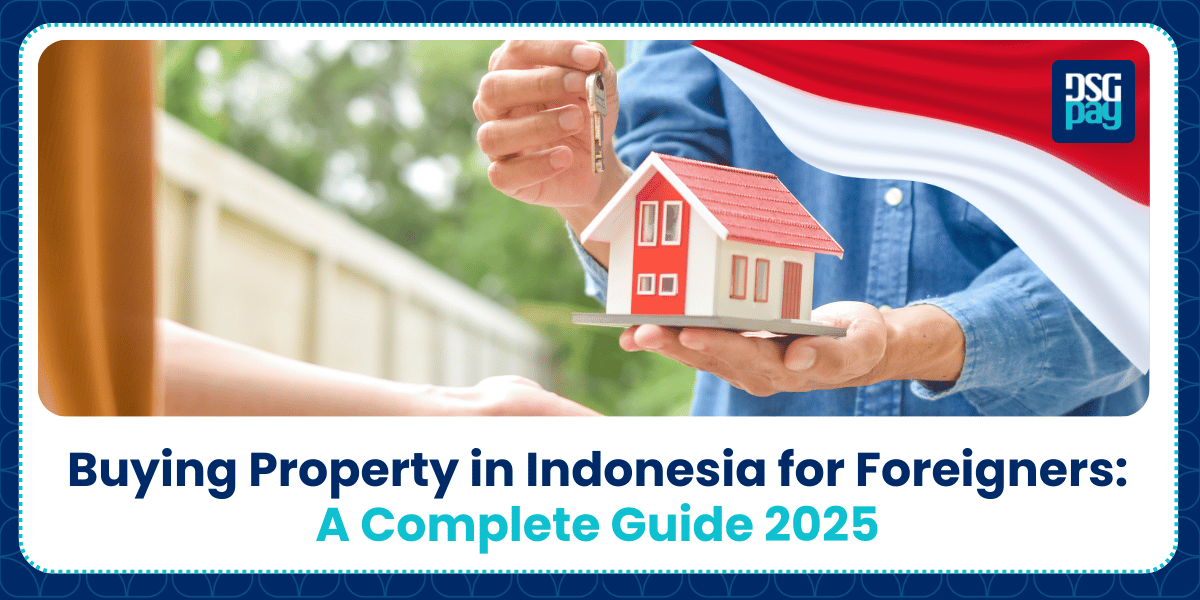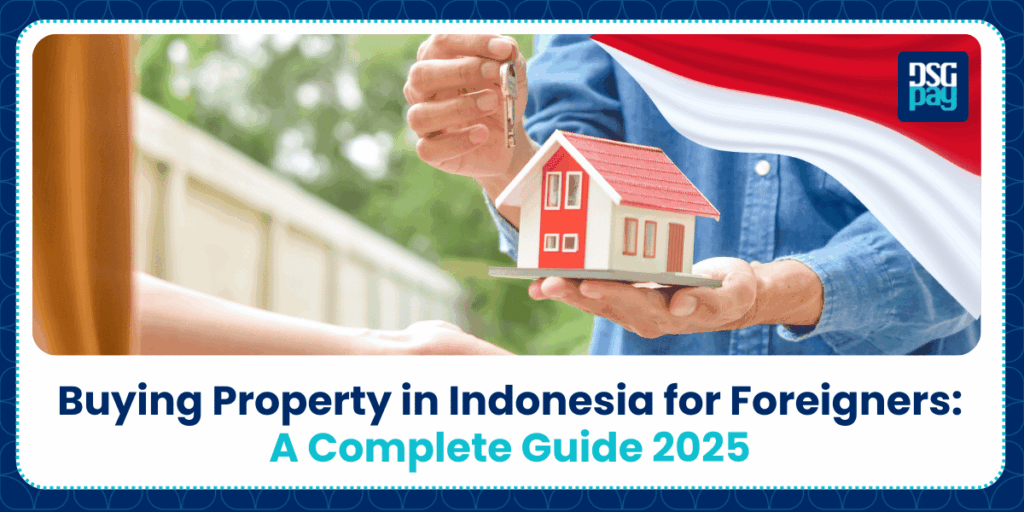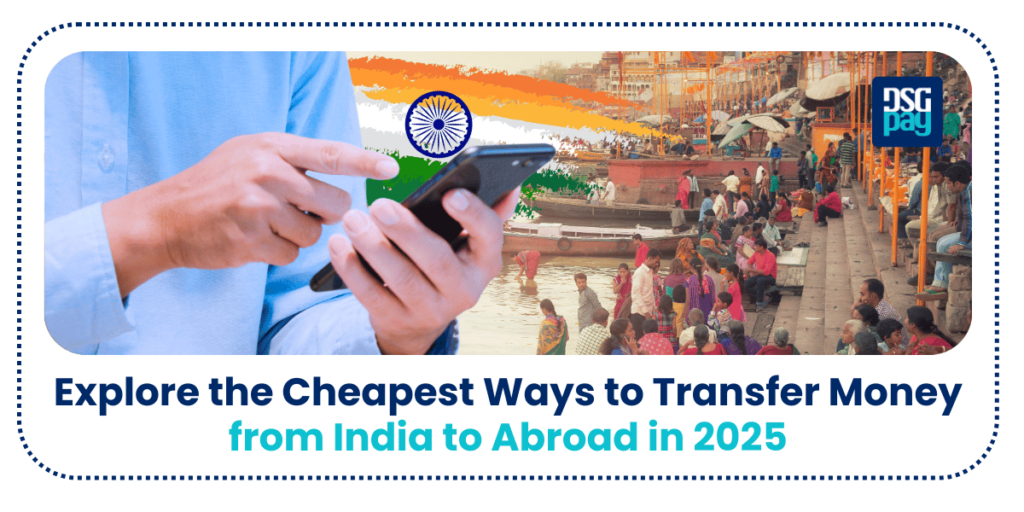Looking for your dream villa in Bali or planning to launch your next big business in Jakarta?
Either way, buying property in Indonesia for foreigners used to feel like decoding ancient law scrolls, with every lawyer saying something different.
But that’s changing fast. The real estate market in Indonesia is booming, with total transaction values expected to hit around $62.7 billion by 2029. That’s a $2.3 billion jump from 2024, and it’s clear: more people (and businesses) are getting in.
This guide offers a complete roadmap for 2025 on buying property in Indonesia for foreigners, including legal requirements, risks, and strategies for a smooth, secure process.
Table of Contents
Key Takeaways:
- Foreigners can buy property in Indonesia, but there are specific regulations to follow.
- Choosing the right property type, like a leasehold or Hak Pakai, is crucial for foreigners.
- It’s important to work with a local lawyer and notary to navigate legal procedures.
- Understand the financial requirements, including taxes and maintenance costs.
- Location matters: Research the best areas for both living and investment opportunities.
Can Foreigners Buy Property in Indonesia?
Foreigners can buy property in Indonesia, but there are restrictions. You can’t own land outright under your own name, and the process involves specific legal structures.
Owning freehold land (called Hak Milik) is reserved for Indonesian citizens only. This is the part where most people throw their hands up, assume it’s impossible, and go back to scrolling dream homes on Instagram. But here’s what those Instagram reels don’t tell you.
There are legal paths that let you control, live in, or develop property in Indonesia without breaking the rules or needing a local nominee. They just have different names: Hak Pakai (Right to Use) and Hak Guna Bangunan (Right to Build).
These aren’t loopholes; they’re government-sanctioned systems designed specifically for foreigners and investors. And if you’re serious about buying property in Indonesia as a foreigner, these are the few land ownership types you must understand.
Step-by-Step Guide to Buying Property in Indonesia for Foreigners
1. Choose the Right Ownership Structure
When it comes to buying property in Indonesia as a foreigner, choosing the correct ownership structure is key.
Here are the two most common routes that foreigners go for:
- Hak Pakai (Right to Use): If you’re purchasing a property for residential use, you’ll likely go with Hak Pakai. This gives you the legal right to use the land for a set period (usually 30 years, renewable). It’s the most straightforward option for buying a home or apartment.
- PT PMA (Foreign-Owned Company): If you’re looking at investment or commercial property, the PT PMA structure is your best bet. This allows you to establish a foreign-owned company in Indonesia, which can legally own land and property for business purposes. This structure works best for those planning to operate a business or run a commercial venture in the country.
The route you choose depends entirely on what your property goals are: residential living or setting up your business operations. So, choose wisely based on your long-term plans.
2. Hire a Licensed Notary and Legal Advisor
When buying property in Indonesia as a foreigner, working with the right professionals is critical. Every land deal in Indonesia has to go through a PPAT (Land Deed Official). This is a licensed notary who handles all the legal paperwork and ensures the sale follows local law.
But don’t stop there. You’ll also want a property-savvy lawyer on your side. They’ll catch the hidden details you’re unlikely to spot on your own:
- Check the land certificates for anything shady.
- Confirm zoning laws so you’re not buying land you can’t use.
- Look into ownership history to avoid hidden claims.
This isn’t where you want to pinch pennies. Paying for proper legal help now could save you a serious headache (and a ton of cash) later.
3. Due Diligence on the Property
Do a proper property check as this step is non-negotiable when buying property in Indonesia as a foreigner.
Before signing anything, this is where you get into the nitty-gritty:
- Clear Title: Make sure the title is clean and legit (look for SHM or SHGB). No title, no deal.
- Zoning: Check that the land isn’t in a green zone or protected forest. If it is, walk away. Fast.
- Disputes or Debts: You don’t want land tied up in legal fights or tax drama. Ask the right questions and make sure the coast is clear.
4. Sign a Sale and Purchase Agreement (Akta Jual Beli)
This is the big moment when everything gets official. The agreement is signed at the notary’s office and spells out the terms of the sale. Make sure it clearly includes:
- When and how payment happens
- When the property is officially handed over
Have your lawyer comb through it all before you sign. This isn’t the time for assumptions or guesswork.
5. Pay Taxes and Fees
Once you’ve signed, you’ll need to handle the money side. That includes:
- Property Transfer Tax (BPHTB): Usually 5% of the property’s value.
- Notary Fees: For all the legal processing.
- Extra Fees: Like title deed transfer and registration.
Taxes and Fees When Buying Property in Indonesia
| Cost Type | Typical Rate/Amount | Paid By |
| Property Acquisition Tax (BPHTB) | 5% of assessed property value | Buyer |
| Seller Income Tax (PPh) | 2.5% of sale price | Seller |
| Notary Fees | 1% – 2.5% of property value | Buyer |
| Legal Fees | 0.5% – 1.5% of property value | Buyer |
| Real Estate Agent Fee | 3% – 5% of property value | Seller |
| Annual Land and Building Tax (PBB) | 0.1% – 0.5% of assessed property value | Owner |
| VAT (on new properties) | 10% of property value | Buyer |
| Luxury Tax (if applicable) | 5% of property value | Buyer |
Plan ahead for these costs. They’re not optional, and skipping them could cause trouble down the line.
6. Register with the National Land Office (BPN)
After everything’s signed and paid, there’s one last step: registering the property in your name with Indonesia’s National Land Office (BPN). If you bought under Hak Pakai, this step locks in your ownership and makes it official with the government.
Whatever you do, don’t skip this. Without registration, your legal ownership isn’t secure, no matter how solid your paperwork looks.
Requirements to Buy Property in Indonesia for a Foreigner
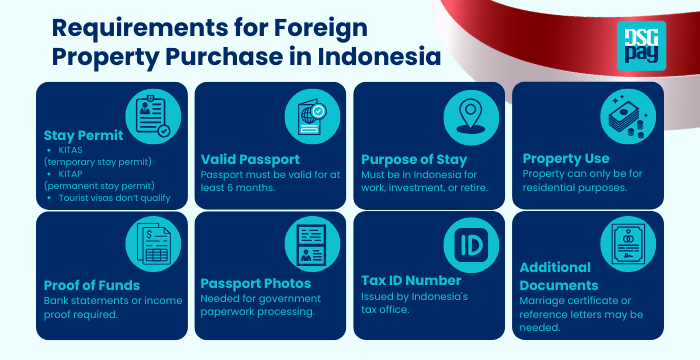
If you’re looking to buy property in Indonesia, you must have the following requirements:
- Stay Permit: To be eligible, you must hold a valid KITAS (temporary stay permit) or KITAP (permanent stay permit). Tourist visas don’t qualify.
- Valid Passport: Your passport must be valid for at least 6 months before your arrival in Indonesia.
- Purpose of Stay: You need to be in Indonesia for a legitimate reason, such as work, investment, or retirement. Short-term tourists are not eligible to purchase property.
- Property Use: You can only buy property for residential purposes. Using it for rental income (e.g. Airbnb) or flipping it for profit is not allowed.
Other Documents
- Proof of Funds: e.g., bank statements or income proof
- Passport Photos: for government paperwork
- Tax Identification Number (NPWP): issued by Indonesia’s tax office
- Additional Documents: may include a marriage certificate or reference letters, depending on your case
Minimum Property Value Requirements for Foreign Buyers in Indonesia (2025)
The Indonesian government sets minimum purchase values for foreigners depending on location:
| Region | Approx. Minimum Purchase Price (IDR) | Approx. USD (2025) |
| Jakarta | DR 3 billion – 10 billion | $195,000 – $650,000 |
| Banten | IDR 5 billion | $325,000 |
| West Java | IDR 2 billion – 5 billion | $130,000 – $325,000 |
| East Java | IDR 1.5 billion – 5 billion | $97,500 – $325,000 |
| Central Java | IDR 1 billion – 3 billion | $65,000 – $195,000 |
| Bali | IDR 2 billion – 5 billion | $130,000 – $325,000 |
| Surabaya | IDR 5 billion | $325,000 |
| Bandung | IDR 1.5 billion | $97,500 |
| Batam & Lombok | IDR 2 billion | $130,000 |
| North Sumatra | IDR 1 billion – 3 billion | $65,000 – $195,000 |
| Other regions/provinces | IDR 750 million – 1 billion | $48,750 – $65,000 |
(Exchange rate estimated at IDR 15,500 = 1 USD)
How to Find Property in Indonesia
- Use Local Property Sites: These sites filter by region, pricing, ownership types, and foreigner eligibility.
- Rumah123
- Lamudi.co.id
- 99.co
- Traveloka Property
- DotProperty
- Work With Real Agents: Don’t go it alone. A local agent who knows how to navigate foreign transactions can save you time, risk, and legal headaches.
- Check New Developments: Many developer projects offer units via Hak Pakai or leasehold, easier paths for foreigners. Always verify with the developer directly.
- Join Local Forums and Expat Groups: Off-market deals often float around on Facebook groups, WhatsApp threads, and niche expat forums. Start networking.
- Old-School Drive-By: In Bali or Jakarta? Cruise around, look for “DIJUAL” signs, and talk to locals. It’s low-tech, but it works especially for private sales.
Bonus Tips for a Smooth Search and Secure Deal
Once you’ve found a property, keep these best practices in mind:
- Work with a reputable agent experienced in buying property in Indonesia for foreigners.
- Never pay in full before legal verification, title checks, and zoning are non-negotiable.
- Consider long-term leases as a flexible and lower-risk entry point.
- Stay updated on regulations, as property laws can shift quickly in Indonesia.
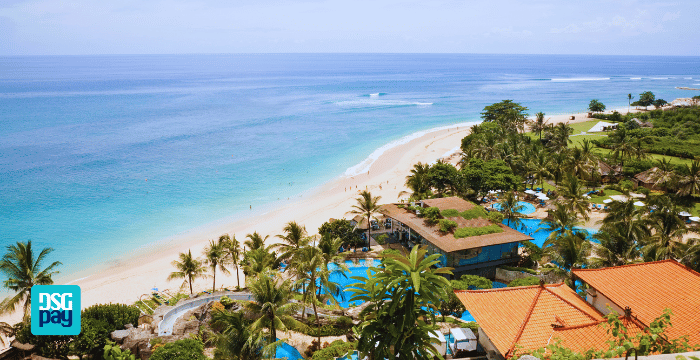
Is It a Good Time to Buy Property in Indonesia as a Foreigner?
In 2024, prices only crept up by about 1.46%. Factor in inflation, and you’re actually looking at a slight dip in real value. That gives you a bit of a golden window to buy before things start picking up speed again.
Some cities like Pontianak and Batam are showing stronger growth, while areas like Medan and Bandung are holding steady. If rental income is on your radar, Jakarta’s still delivering around 4.27% returns, which isn’t too shabby.
Even though property sales dipped a bit last year, the outlook is still pretty solid. More importantly, recent regulatory changes have made buying property in Indonesia for foreigners more accessible than ever. Less bureaucracy means more opportunities for your beachfront or city-view dream to come true.
Pros and Cons of Buying Property in Indonesia as a Foreigner
| Pros | Cons |
| Lower property prices than Western markets | Cannot own land freehold (Hak Milik) |
| High rental yields in tourist areas | Complex legal procedures |
| The growing expat and digital nomad scene | Must comply with evolving government policies |
Key Land Ownership Types for Foreigners
| Ownership Type | Available to Foreigners? | What It Means | Typical Use | Duration | Key Notes |
| Hak Milik (Freehold Ownership) | No | Full ownership of land and property | Residential, Agricultural | Lifetime | Restricted to Indonesian citizens only |
| Hak Pakai (Right to Use) | Yes | Right to occupy and use land | Residential | 30 years (extendable to 80 years) | Ideal for residential purchases |
| Hak Guna Bangunan (Right to Build) | Yes | For building on land | Commercial or residential | Typically granted for 30 years | Renewable |
| Hak Sewa (Leasehold) | Yes | Rental-based rights | Residential, Commercial | Depends on land title | Commonly used for villas and commercial units |
What is a PT PMA and How Does It Help You Buy Property?
When it comes to buying property in Indonesia for foreigners, one of the most secure and scalable methods is through a PT PMA (foreign-owned company). It’s not just a legal route, it’s a smart investment structure that allows you to build, lease, or develop real estate within the boundaries of Indonesian law.
Here’s what this setup gets you:
1. Full Development Rights: Once you’ve got your PT PMA, you’re clear to build. Hotels, villas, or office towers, it’s all on the table. This isn’t just about landholding; it’s about active business development backed by a legally solid structure.
2. Long-Term Leasing for Projects: Not ready to buy? No problem. A PT PMA also allows for long-term leases, so you can secure strategic land, start your project, and scale, all without upfront ownership. It’s a lower-risk entry point into high-potential markets.
Note: A PT PMA must follow strict compliance and reporting rules under Indonesia’s Investment Coordinating Board (BKPM).
Where Foreigners Are Buying Property in Indonesia (And Why)
When it comes to buying property in Indonesia as a foreigner, location is everything. Don’t just follow tourist buzz, follow where the smart investments are happening. These hotspots are leading the pack for foreign buyers looking to mix lifestyle and returns.
1. Bali: High ROI Meets Lifestyle Appeal
Bali remains a top pick for buying property in Indonesia for foreigners thanks to strong tourism, rental yields, and lifestyle perks.
- Canggu: Beach clubs & remote workers = a rental goldmine. Think boutique cafes, high occupancy, and surf culture.
- Ubud: If wellness and retreats are your angles, this is your play. It’s quieter but has high-value niche demand.
- Seminyak: The premium corner of Bali. Beachfront villas, fine dining, and affluent travellers make this a top spot for luxury investments.
2. Jakarta: Commercial Powerhouse
For business-minded investors or expats in finance, Jakarta delivers:
- SCBD: Central Business District, high-rise office spaces, executive apartments, ideal for corporate leases.
- Kuningan / Mega Kuningan: Strong for mixed-use (commercial & residential) developments.
- Kemang: Trendy, expat-heavy, and culturally rich. Great for boutique residential or hybrid retail spaces.
3. Batam & Lombok: Emerging Markets with Long-Term Potential
Looking for a less saturated market?
- Batam: Close to Singapore, tax-friendly, and built for trade and industry.
- Lombok: Early-stage tourism growth. Lower land costs now, with infrastructure catching up fast.
Restricted Areas for Foreign Buyers in Indonesia
When it comes to buying property in Indonesia for foreigners, it’s important to know that not every location is up for grabs. The Indonesian government has designated certain areas as off-limits to protect national interests and cultural heritage. Here’s where foreigners cannot buy property:
- National Security: No buying near military bases, airports, or other strategic zones.
- Environmental Protection: Areas like national parks and forest reserves are protected, and no property deals are allowed.
- Cultural Heritage: Certain villages, temples, and heritage sites are preserved and closed to foreign ownership.
- Foreign Policy Reasons: Islands like Natuna (near the South China Sea) are restricted due to international tensions.
The Biggest Barrier to Buying Property in Indonesia as a Foreigner
You’ve identified the right property. The paperwork is almost ready. But then comes a common and often unexpected obstacle: you can’t open a local Indonesian bank account.
For anyone buying property in Indonesia for foreigners, this can be a serious roadblock. International wire transfers are not only expensive and slow, they’re also difficult to track, and they introduce risks that can delay or even derail your deal entirely.
And if you’re planning to generate rental income or manage operational expenses? You’ll need a local solution to avoid unnecessary costs and complications.
DSGPay: A Smarter Way to Manage Property Transactions in Indonesia
For many foreigners buying property in Indonesia, one of the most unexpected hurdles is managing cross-border payments, especially when opening a local Indonesian bank account isn’t an option.
DSGPay provides a virtual account solution that simplifies your international property payments. You can send, receive, and hold funds in over 30 global currencies, all without the need to open a local bank account in Indonesia.
Here’s why it works for foreign buyers:
- No local bank account required: Make payments directly from your DSGPay virtual account.
- Support for 30+ currencies: Ideal for international transactions and currency flexibility.
- Faster, lower-cost transfers: Send and receive funds quickly without relying on traditional banking systems and unnecessary fees.
- Competitive exchange rates: Save more on every transaction with fair and transparent FX pricing.
- Real-time payment tracking: Monitor your transactions instantly, ensuring transparency and control.
- Licensed and regulated: Operates under proper licensing for compliance.
- Dedicated Support: Work with a team that understands the challenges of foreign ownership and can help you navigate the process with confidence.
Whether you’re settling a down payment, covering legal fees, or managing ongoing property-related costs, DSGPay makes the financial side of your purchase faster, simpler, and more secure.
